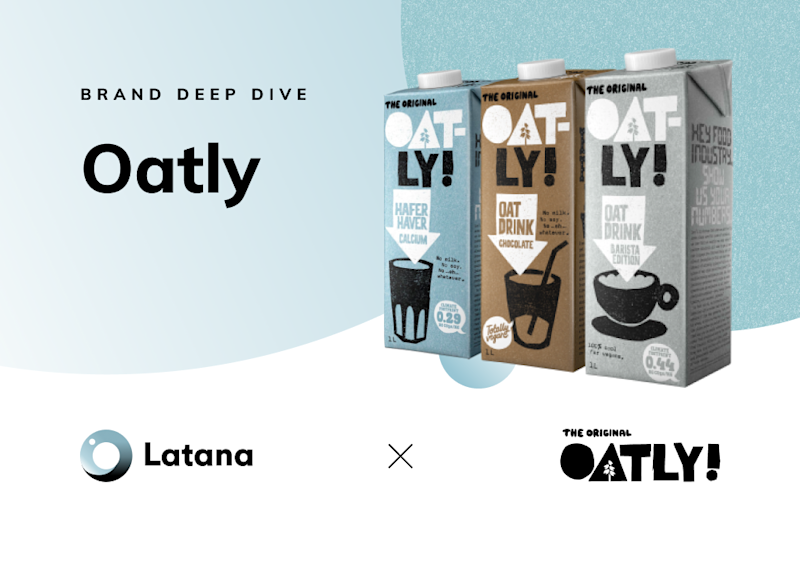Booking a holiday has never been easier. We take it for granted that, with a few exceptions, no matter where we’re traveling in the world, we can book flights, hotels, transfers, and excursions all from the comfort of our homes — increasingly from our phones! With ease, consumers can become their own travel agents; filtering through millions of options to find the ones that best suit their tastes.
It’s worth remembering that it wasn’t always this easy. In fact, the model for booking a holiday looked completely different before the 2000s. Brochures, travel agents, package deals, and guided tours were all commonplace — long before the arrival of technology that allowed consumers to do it all themselves.
In short, at the turn of the century the travel industry was revolutionized and this great leap forward was fueled by the growth of the internet, as well as a handful of innovative brands that leveraged it to change everything. One of those brands was Booking.com.
In this Brand Deep Dive, we’re going to take a closer look at Booking.com, the Netherlands-based travel behemoth that transformed how trips are booked. With more than 28 million listings in virtually every corner of the world, Booking.com built its brand around simplifying the buying experience and solving common consumer problems.
But how did they do it? And what lessons can you learn from them?
Let’s dive right in.
Traveling Back To The 90s
Booking.com started life in 1996 as bookings.nl, founded by Geert-Jan Bruinsma, who was fresh out of college when he saw the potential of the internet and decided to create a hotel booking website.
He wasn’t the first to have this idea. The Hotel Reservation Network had already launched its first website — Hoteldiscount.com — in 1995, Expedia came along a year later in 1996 as a division of Microsoft, and Lastminute.com joined the gang in 1998.
Not long after, Andy Phillipps and Adrian Critchlow decided they could do better than all of these brands and created Activebooking.com, which eventually changed its name to Active Hotels. They saw a gap in the market — independent hotels which weren’t yet connected to the internet like larger, hotel-chain brands were.
In these early days of the internet though, things weren’t as simple as they are now. Many of the independent hotels that Activebooking.com wanted to list “didn't have a laptop or a computer.” As a solution, they would provide them with “this small, Alcatel phone with a modem that gave them access to the Internet.” Despite having only a very simple interface, with these phones hotel owners “could put in their rates and availability and then we would connect to the World Wide Web.”
This was the age of the dot-com bubble, when internet use was still being discovered and adopted by millions of consumers. It provided ample opportunity for growth for all of these brands — that is until the bubble burst in the early 2000s. While many online travel brands didn’t survive, Active Hotels and Bookings.nl were able to keep growing and thriving in the new travel ecosystem.
In 2004 and 2005, these two brands were both acquired by another internet travel company, Priceline.com — and in 2006, they were merged to finally create the brand we know today as Booking.com.
In the run-up to their acquisition, both brands had developed distinct specialties. Active Hotels had developed a web of distribution partnerships and affiliate deals, while Bookings.nl had become very adept at search engine marketing. Under the new brand, their strengths could be combined. Booking.com was ultimately able to start outsmarting competitors by using the full capabilities of the internet — setting trends that would be copied by others.
For instance, the site would display messaging “about how many site visitors were looking at a specific hotel at that particular moment, or the number of people who had booked the property in the past day”. These were Booking.com innovations, but they would soon become “standard fare across online travel.”
While the 2010s saw the rapid growth of Airbnb, a disruptive innovation that could yet have implications for Booking.com, this didn’t stop the brand’s upward trajectory. Indeed, its dominance is so impressive that in 2015, leaked EU documents expressed concerns about Booking.com (as well as dominant other brands) exercising “undue power over their market sector” acting as the “main entry point to the travel sector” and, thus, being able to charge “fees with full discretion”.
This shouldn’t come as a surprise. Available in 43 languages and with over 28 million listings, Booking.com has become a worldwide phenomenon. However, it hasn’t been without its controversies.
While listing the number of bookings made with a particular hotel and displaying the number of rooms remaining is a great way to create a sense of urgency, it has also brought the brand under scrutiny for misleading holidaymakers and pressuring them into booking. In 2018, the UK’s competition watchdog, the Competition and Markets Authority, launched an investigation into online booking websites that utilized this technique, as well as other misleading methods aimed at increasing conversion rates.
Indeed, the CMA highlighted four main areas of investigation and ordered the sites to review their practices. The four main concerns were:
How search result rankings could potentially be influenced by factors such as how much commission a hotel pays the site.
Whether “a false impression is created” when displaying information on how many people are looking at one particular room, how many rooms are remaining, and how long a price is available for.
A need for clarity over discounts, including “whether a weekday rate is being compared to a previous weekend rate”.
Whether holidaymakers were being hit with “unexpected extra charges such as taxes and booking fees later in the booking process.”
A year later, the UK consumer watchdog, Which?, claimed that Booking.com was still making misleading claims, reportedly finding “clear evidence that Booking.com has not yet sufficiently cleaned up its act and is flouting the rules on pressure-selling, which could lead to millions of consumers being rushed into making a booking.” They found that five out of 10 of Booking.com's "only 1 room left on our site" claims failed to give an accurate picture of availability.
But controversies aside, what can you learn from this globetrotting brand?
3 Lessons To Be Learned From Booking.com
1. Don’t Just Be Convenient, Be Empowering!
Booking.com’s brand mission is to “make it easier for everyone to experience the world.” This makes sense, as Booking.com earns its revenue by linking up consumers with businesses and taking commissions.
In order to succeed at this, it needs to give consumers an incentive to include them as middlemen — and it does so by making the process of planning and booking a holiday extremely simple while offering a one-stop shop for millions of accommodation types, flights, transfers, car hire, and activities.
Interactions with the brand are geared towards simplicity and straightforwardness, with a website that features numerous tools for consumers to filter and find the right services, all displayed in a functional and clear way.
While this is all obviously the core of Booking.com’s brand proposition, its identity elevates what these tools all mean to the consumer — it’s not just about convenience, it’s about empowerment.
Its long-standing slogan — Booking.yeah — is the perfect embodiment of how the brand packages and sells empowerment. It’s usually accompanying an ad injected with a heavy dose of humor, such as this one that ironically celebrates — to triumphantly empowering music — the popular joys of taking a vacation.
This was taken a step further in the brand’s 2022 “Surfs Up” campaign, which explicitly frames the ease of booking everything in one place as a source of empowerment.
The Takeaway: This comes back to something that virtually every brand should be practicing. When thinking about your core message and identity, take a step back and consider what your product or service enables consumers to achieve.
Booking.com isn’t just an easier way to book a holiday — it’s an empowering service that places the wonders of the world at consumers’ fingertips. Think about the ways your own brand empowers consumers, and focus on that — like fellow travel brand Centre Parcs does.
2. Give Your USPs A Dose Of Emotion
Booking.com’s pre-pandemic 2019 campaign “live curious” also provides some useful lessons for how you can inject emotion into your brand proposition to inspire passion in consumers.
While sticking to the brand’s typical light-hearted and comedic tone, this campaign leaned heavily into the wealth of diverse experiences possible around the world, in order to highlight Booking.com’s filtering and search capabilities.
The takeaway: If lesson one was about zooming out to think about how your brand empowers consumers, this lesson is about zooming in to think about the human effect of your USPs. Why did your brand work so hard to bring a particular feature to life? What new possibilities does that open up for consumers, and how could it be used in practice?
When showing off how your brand’s product or service can be used, don’t be afraid to get emotional. You’ll find your brand building deeper connections with consumers.
3. Know When To Adapt Your Brand Message
Like its competitor Skyscanner, and various other online travel agents, Booking.com was forced to make lots of changes to its brand message when it faced the existential crisis that was the COVID-19 Pandemic.
Despite the downturn in travel during 2020 that ravaged the travel industry, Booking.com wanted to make sure its brand remained in consumers’ minds — and it did so with a message that was a stark departure from its usual humorous tone.
On top of this, the brand adapted its services to fit with the host of new considerations and expectations that consumers now had when it come to booking trips — once travel reopened enough for them to do so.
The Takeaway: While historic events that affect your brand will hopefully be rare, Booking.com’s reaction to the pandemic demonstrates the value of building emotional connections between your brand and consumers, even in times when there might be real obstacles standing in the way.
Whatever those obstacles might be, take time to invest in your brand’s relationships with consumers and you’ll likely see it repaid in the future when things return to normality.
Final Thoughts
It’s clear that the powers behind Booking.com recognized early on just how personal our tastes in travel can be — and how catering to those individual tastes could be the central ingredient to a winning brand.
With its mission to “make it easier for everyone to experience the world”, Booking.com ultimately owes its dominant position to a brand strategy that celebrates the quirks of travel alongside its near infinite possibilities, while empowering consumers to embrace their personal preferences and pursue their travel ambitions.





![Latana x Hinge logos [Thumbnail]](http://images.ctfassets.net/7so8go2zrvbw/291fVpGfmgwROX4E33g9uV/d9c8ae72b5a57395661cec55fedbf884/Blog_SEO-Thumbnail_1000X709_-_2022-08-15T170035.426.png?w=800&h=567&q=95&fm=png)